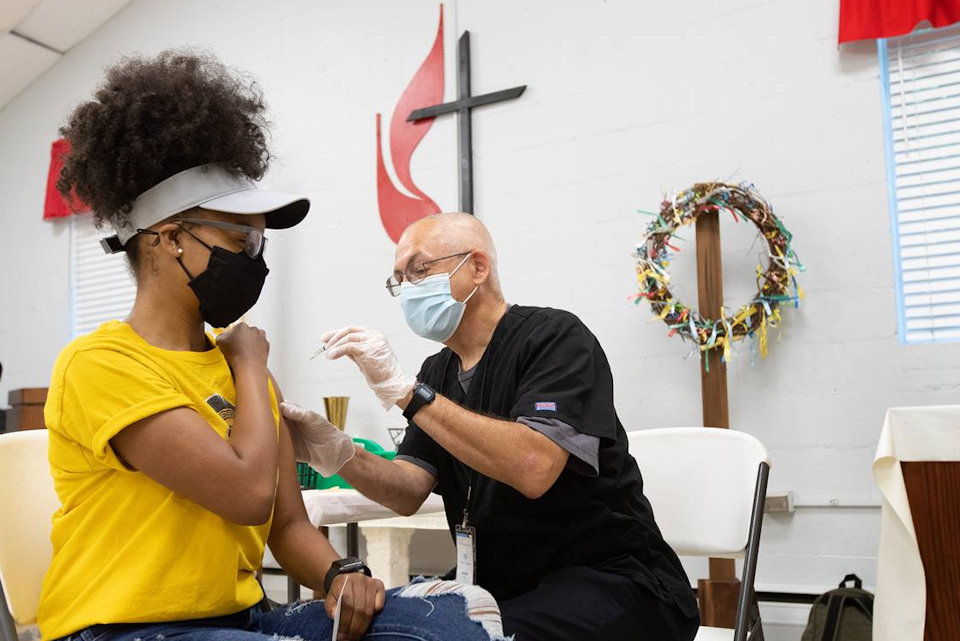United Methodist Communications began surveying local church leaders about the pandemic’s impact on worship, giving, and church activities starting on March 26, 2020. The fourth phase of the study is now complete.
Nashville, Tennessee – United Methodist Communications has released the final phase findings of its Impact of COVID-19 Study. Phase IV assessed the impact of COVID-19 on local church services and ministries, finances, and clergy well-being and also explored demographic trends.
The results verify that the pandemic has brought upon the dawn of wide-spread hybrid worship services where the majority of churches are offering both online and in-person service options. These bring with them a return to children and youth programs, as well as small group and Sunday school for adults. Churches are also continuing to use their buildings for food distribution and community outreach, nonprofit organizations and support groups.
Though people are feeling encouraged on average, levels of exhaustion and loneliness are on the rise. Church leaders have experienced high levels of stress as they’ve navigated the new ministry landscape. They also have concerns about whether attendance numbers will stay consistent or change for better or worse.
“Throughout each study phase we’ve seen that the United Methodist body and leadership have been adaptive and capable of finding creative solutions for conducting ministry and supporting members despite unprecedented circumstances” shared Teresa Faust, Research Manager for United Methodist Communications, the denomination’s global communication agency.
“United Methodist Communications’ launched its Impact of COVID-19 Study on March 26, 2020 to assess the impact of the coronavirus on local church activity levels,” added Faust. “As the pandemic continued, we sustained our research efforts to track how United Methodist churches were adapting worship and programs, how members were responding in participation and tithing and identified trends for reopening in-person gatherings.”
From a location standpoint, data shows the Western jurisdiction has trended heavier for online-only services and cited higher levels of state and local government support. North Central and Northeastern jurisdictional churches reported the highest levels of CARES Act support, whereas Southeastern churches lead in being vaccination distribution sites.
Smaller churches have been more likely to hold only in-person services, forgo VBS, struggle financially and be most hindered by member opinions and comfort levels in reopening their doors (trends mirrored by predominantly black churches). Conversely, larger churches have a higher sense of operating as usual, have generally moved to a hybrid ministry approach, applied for the CARES Act and are not facing huge financial woes. However, the larger churches appear to have taken on the lion’s share of hardships in terms of mental well-being, feelings of exhaustion, anxiety and frustration.
“The valuable information guided us to quickly create new resources like our Local Church Learning Sessions and adjust our services to best equip local churches for what may lay ahead,” said Poonam Patodia, Chief Marketing Officer for the agency. “While businesses were closing down, our agency’s teams increased our activity knowing that churches needed tools to help them continue to serve and share the gospel message. Having all transitioned to work-from-home ourselves, we could empathize with church leaders and knew they needed support right away.”
Market research is an essential navigation tool that United Methodist Communications uses on behalf of United Methodist churches and ministries to inform decisions and assess strategies, services and content to provide critical training and experience for people seeking to serve the church and its community.
Last Updated on October 27, 2023

